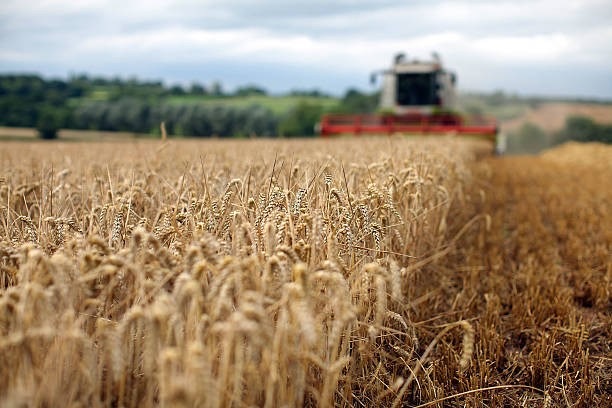Rabat - Morocco’s Agriculture Minister Ahmed El Bouari officially kicked off the 2024-2025 agricultural season yesterday, unveiling a comprehensive plan aimed at supporting farmers through water scarcity, rising costs, and other pressing challenges.
The campaign introduces a range of support measures for farmers to address challenges like water scarcity and rising input costs. El Bouari noted that this initiative comes after six years of severe drought and a complex global economic situation that has inflated these costs.
In response, the ministry has adopted strategies aligned with Morocco’s "Green Generation" 2020-2030 agenda to ensure successful agricultural outcomes.
These support initiatives include essential areas such as seed and fertilizer supply, agricultural sector development, irrigation water management, expanded agricultural insurance, as well as enhanced financing and assistance for farmers.
For the upcoming season, the ministry aims to cover 5 million hectares with approximately 1.26 million quintals of certified seeds. These will primarily be autumn cereals, priced 3-5% lower than last year to encourage adoption.
To promote crop diversity, the seed subsidy program has expanded to include new varieties of cereals, forages, and legumes, such as triticale, oats, peas, and chickpeas, to encourage crop rotation practices among farmers.
The national complementary irrigation program for cereals will continue, targeting the stabilization of grain production for 1 million hectares by 2030. Additionally, the ministry plans to extend multi-risk climate insurance for grains, vegetables, and oilseeds, covering up to 1 million hectares. It will also maintain insurance for fruit trees across an estimated 50,000 hectares.
To ensure sufficient fertilizer availability, the market will be supplied with 650,000 tons of phosphate fertilizers and 200,000 tons of nitrogen fertilizers, maintaining last season’s pricing.
In the sugar industry, plans are in place to expand sugar beet cultivation to 45,000 hectares, supported by improved water resources in specific regions. These will be accompanied by price increases for sugar beet by y MAD 80 ($7.50) per ton and sugar cane by MAD 70 ($6.50) per ton.
In the dairy sector, subsidies for cattle feed will continue, along with extended restrictions on the slaughter of certain dairy cow breeds. Financial assistance will be available for dairy farmers to purchase both imported and locally produced purebred heifers, as well as breeding calves.
To support the livestock industry, import duties on cattle intended for fattening will be suspended for up to 120,000 head until the end of 2024, with plans to extend this measure into 2025.
To address the challenges of water scarcity, the ministry will distribute 5.2 million quintals of subsidized barley and 2 million quintals of compound feed. It will also establish new watering points and provide cisterns to maintain livestock water infrastructure.
The launch event drew high-level attendees, including governors, regional council presidents, members of the Moroccan Federation of Agriculture and Rural Development (COMADER), the Credit Agricole Morocco board, and representatives from agricultural cooperatives and associations.
The campaign introduces a range of support measures for farmers to address challenges like water scarcity and rising input costs. El Bouari noted that this initiative comes after six years of severe drought and a complex global economic situation that has inflated these costs.
In response, the ministry has adopted strategies aligned with Morocco’s "Green Generation" 2020-2030 agenda to ensure successful agricultural outcomes.
These support initiatives include essential areas such as seed and fertilizer supply, agricultural sector development, irrigation water management, expanded agricultural insurance, as well as enhanced financing and assistance for farmers.
For the upcoming season, the ministry aims to cover 5 million hectares with approximately 1.26 million quintals of certified seeds. These will primarily be autumn cereals, priced 3-5% lower than last year to encourage adoption.
To promote crop diversity, the seed subsidy program has expanded to include new varieties of cereals, forages, and legumes, such as triticale, oats, peas, and chickpeas, to encourage crop rotation practices among farmers.
The national complementary irrigation program for cereals will continue, targeting the stabilization of grain production for 1 million hectares by 2030. Additionally, the ministry plans to extend multi-risk climate insurance for grains, vegetables, and oilseeds, covering up to 1 million hectares. It will also maintain insurance for fruit trees across an estimated 50,000 hectares.
To ensure sufficient fertilizer availability, the market will be supplied with 650,000 tons of phosphate fertilizers and 200,000 tons of nitrogen fertilizers, maintaining last season’s pricing.
In the sugar industry, plans are in place to expand sugar beet cultivation to 45,000 hectares, supported by improved water resources in specific regions. These will be accompanied by price increases for sugar beet by y MAD 80 ($7.50) per ton and sugar cane by MAD 70 ($6.50) per ton.
In the dairy sector, subsidies for cattle feed will continue, along with extended restrictions on the slaughter of certain dairy cow breeds. Financial assistance will be available for dairy farmers to purchase both imported and locally produced purebred heifers, as well as breeding calves.
To support the livestock industry, import duties on cattle intended for fattening will be suspended for up to 120,000 head until the end of 2024, with plans to extend this measure into 2025.
To address the challenges of water scarcity, the ministry will distribute 5.2 million quintals of subsidized barley and 2 million quintals of compound feed. It will also establish new watering points and provide cisterns to maintain livestock water infrastructure.
The launch event drew high-level attendees, including governors, regional council presidents, members of the Moroccan Federation of Agriculture and Rural Development (COMADER), the Credit Agricole Morocco board, and representatives from agricultural cooperatives and associations.

